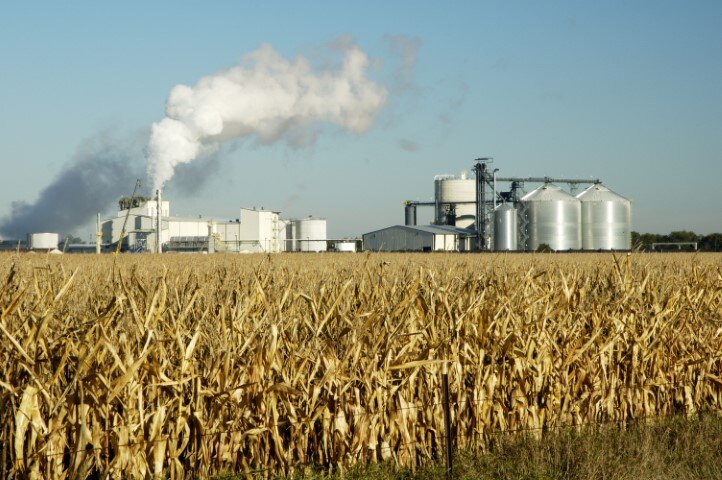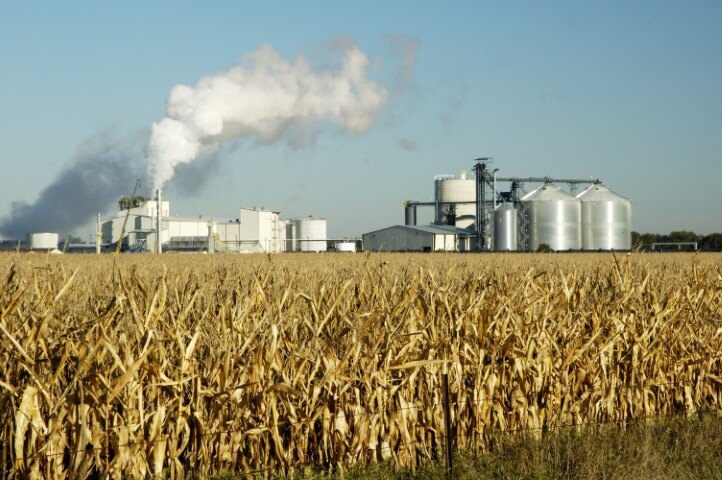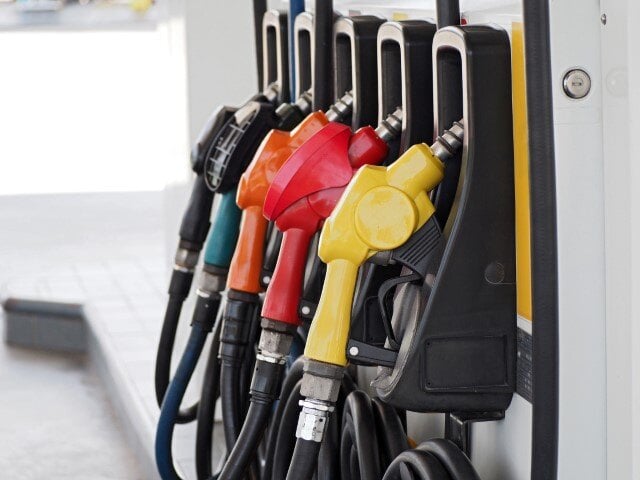Ethanol and the environment - the news isn't all good
The whole point of blending ethanol into gasoline across the nation was to improve the environment by making gasoline burn cleaner. Cleaner burning...

When it comes to making ethanol for fuel, there's no country better at it than Brazil. Brazils ethanol production has been happening on a large scale since before the mid-70s, when the Brazilian government responded to the oil crisis by creating a national policy aimed at phasing out fossil fuels in favor of fuel made from sugar cane. Today you will find a minimum of 20-25% ethanol in all gasoline in Brazil. Which makes pro-ethanol people here in the US point to Brazil as the model for what we should be aiming to be like.
 They say "people run on E25 or E85 in Brazil all the time, why can't we?". That's a good question. The short answer is that the cars are different over there, having been modified so they can run on these higher ethanol fuels. 94% of all cars sold in Brazil from 2009 on are flex-fuel vehicles. That's a whole different ballgame than the normal cars here in the states trying to run on ten or fifteen percent ethanol. But we're not here to rehash why Brazil runs on higher ethanol fuel than we do. What we're interested in is why Brazil is able to make so much ethanol in the first place.
They say "people run on E25 or E85 in Brazil all the time, why can't we?". That's a good question. The short answer is that the cars are different over there, having been modified so they can run on these higher ethanol fuels. 94% of all cars sold in Brazil from 2009 on are flex-fuel vehicles. That's a whole different ballgame than the normal cars here in the states trying to run on ten or fifteen percent ethanol. But we're not here to rehash why Brazil runs on higher ethanol fuel than we do. What we're interested in is why Brazil is able to make so much ethanol in the first place.
Contrary to semi-popular opinion, Brazil isn't the leading producer of ethanol in the world. That honor goes to the United States, which produces more than 14 billion gallons of ethanol fuel a year. That's more than twice what Brazil makes (5.5 billion). But you put the US and Brazil together and you get about ninety percent of the world's ethanol fuel production.
Now, you might expect the US to be number one, considering the resources and space we have. We don't do anything small here. But Brazil produces a lot more ethanol for its size than the United States does. The whole country (Brazil) has about 5 million cars, meaning they produce more than 1000 gallons of ethanol per car per year in the entire country. Compare the United States which has about 60 million registered vehicles, which comes out to about one-fifth the amount of ethanol produced per "capita".
There are also certain inherent reasons why Brazil is able to make so much ethanol. They happen to be really really good at it. Simply because of where they are located, Brazil gets a larger portion of the sun's solar energy than the United States does. And this helps Brazilian farmers be really efficient at growing sugarcane. They combine this geographical advantage with continual farming advances that have have almost tripled the ethanol yield per hectare of crop just since 1975. And the mills in Brazil are able to extract 98% of the energy content out of the sugarcane. Contrast that to the US, where in the places we do grow it, we get only a fraction of the sugarcane yield they do in Brazil. And that's too bad, because the sugarcane plant is really efficient at turning solar energy in plant energy. Brazil just happens to be in the right place to be able to take best advantage of this.
If you compare corn and sugarcane, it's easy to see that sugarcane is a much better crop for producing large scale ethanol. Look at "energy balance", for example. That's a comparison of the amount of energy you end up with compared to the energy that went in to growing the plant. Depending on who you talk to, corn only produces 1.3-1.6 times the amount of energy it takes to grow it. Sugarcane produces 8-10 times the amount of input energy. Sugarcane also eleases 25-30% less carbon than corn does, relative to the energy it produces. And it's able to make double the amount of ethanol per acre of land.
But all is not wine and roses in Brazil when it comes to ethanol and sugarcane. They've felt the pinch of the world's economic problems just like everyone else. Their ethanol production peaked in 2009, but the price of sugar at the time suddenly made it more attractive to make actual sugar out of sugarcane rather than ethanol. So production actually dropped more than one billion gallons the following year and the Brazilian government had to issue a special waiver to lower the minimum ethanol requirement in gasoline from 25 to 20 percent.

The whole point of blending ethanol into gasoline across the nation was to improve the environment by making gasoline burn cleaner. Cleaner burning...

When filling up your vehicle's tank at the gas station, you might be wondering what is the difference between regular gasoline and the fuel they call...
The holy grail for ethanol has always been "can we make ethanol for gasoline out of stuff we can't eat?" More specifically, the big issue has been...